

By Lisbeth Claus and Lester Rosen, The HR Congress Digital Magazine
WHY SHOULD YOU CARE?
As organizations face the new challenges of the humanitarian crisis of Ukraine, one of the best possible ways to help refugees is to source them as new employees. Facilitating the hiring process in this situation is a significant move.
Global HR comes together in support of Ukraine
On March 17, 2022, Dave Ulrich (RBL Group) and Mihaly Nagy (The HR Congress) organized a very powerful and emotional webinar session entitled, RISE: How HR can lead the organization through the current humanitarian crisis and beyond. Numerous HR practitioners from around the world participated. The 90-minute session focused on how HR can come together and help support, within its means and capabilities, the humanitarian relief needed as a result of the Russia-Ukraine war. Wendy and Dave Ulrich focused on how HR in time of crisis is taking on the role of caregiver to employees, architect of organizations, and coach to leaders. In addition, Dave provided 45 ways where HR can contribute in small and unique ways—both short and long term—and come together not just with rhetoric but with deeds in compassionate and professional ways. As the crisis emerged, Sergio Caredda (HR practitioner from Italy) took the lead by setting up a website (https://hrforukraine.org) to collect resources collaboratively that can be useful from an HR point of view to support the people of Ukraine—whether still in country or refugees. The central theme of the webinar session focused on exploring what HR can do now, individually and collectively, as a profession to make a small difference based on our strengths and expertise. As mentioned by Dave Ulrich, one of the areas where HR can help, under the label of Organization/HR People Practices, is to source refugees as new employees in terms of facilitating the hiring process (remove paperwork for hiring, government visas, pre-employment forms, and verification).
Sourcing refugees as new employees
Once the immediate needs of relief and resettlement are over, Ukranian refugees—and also Russians who left their country as a result of the war—will need jobs. Jobs will not only provide an income for refugees but also give them the dignity of being able to support themselves and their families. The bulk of the millions of Ukranian refugees are women—many with children in a foreign land—requiring them to have more flexible work arrangements and possible trauma support as potential workers. Refugees often have to take entry-level jobs as their first employment in another country due to language barriers or their professional skills may not easily transfer to the local job markets whether in Europe or the U.S. In hiring refugees, HR/talent acquisition will also need to overcome administrative hurdles regarding visas, work permits and background checks for compliant hiring. The administrative burden of obtaining a visa/work permit may delay the ability of refugees to get a job offer. Due to the war situation, employers lack access to traditional pre-employment tools for background checking. However, with the necessary HR expertise and advice from screening experts, these administrative and legal hurdles should not be a barrier to employers hiring refugees or refugees finding employment.
Background checks
As part of their due diligence, companies use background checks after extending an offer to a new employee. Global HR practitioners are aware of the many challenges involved in conducting international employment background checks—as opposed to domestic ones—for employees who were born or have lived, worked and studied abroad. (cf. our earlier publication on that topic: Rosen, L. and Claus, L. (2014). International employment background checks. PP 119-140 In: Claus. L. (ed.), Global HR Practitioner Handbook, volume 2. Silverton, OR: Global Immersion Press.) Before the current events in Ukraine, there were well-established protocols for (international) background checks—with the exception of areas held by Russia from the 2014 annexation of Crimea. With regard to criminal history screening, checks were also available, and in fact, Ukrainians could obtain their own criminal certificate (sometime known as a police clearance). Firms could also verify past employment and education and other details as part of a background report.
The current war situation makes the normal due diligence steps impossible and HR will have to develop workarounds in background checking. Many refugees left in a hurry and may not have the necessary papers with them. Most likely a Ukrainian refugee seeking employment will only have their identify card (and/or a passport) in their possession. As some measure of diligence, an employer can review the passport to confirm identity. There is also software available through screening firms whereby a machine can read the Machine Readable Zone (MRZ) portion of a passport that contains encoded information (such as full name, date of birth and place of issue of the passport). As an additional layer of fraud protection, there are software solutions where a person can use an “app” on a cellphone to take a picture of themselves and their passport. These programs recognize legitimate government issued documents from all over the world. In the unlikely event, a refugee would happen to have a fairly recent Ukrainian criminal certificate with them that could also be helpful.
Employers can also utilize various databases—such as an Adverse Media Search or a Global Terrorist database—that may include global sanctions and disbarments. These databases are far from perfect since there is no guarantee that they are complete and/or up to date. Even if there is a positive match, there may not be enough identifiers to determine if it belongs to the subject of the search. The good news however is that these databases are readily available and at least represent some level of due diligence. The Adverse Media Search contains news feeds from numerous trusted sources. However not all offenses or derogatory information will be contained in a newsfeed database. There are also various international terrorist, sanctions and disbarment lists. Again, those are not necessarily complete and can be missing identifiers but at least it is something an employer can perform when the traditional methods are not available.
With regard to background checks, the bottom-line is that even though European employers (and refugees) are at a disadvantage in performing pre-hire due diligence compared to what was available, that does not mean an employer should take no steps at all or conclude it cannot hire a refugee. Employers will need to explore all available tools and exercise their due diligence in other aspects of the hiring process such as the interview process. If the employment remains permanent—and provided it is allowed by law—employers can do additional searches necessary at a later date.
The global HR community can make a difference during this humanitarian crisis by building systems and developing procedures enabling refugees impacted by the war to get jobs and make a new life for themselves.
….
Lisbeth Claus is Professor Emerita of Management & Global HR at Willamette University (MBA) in Salem, Oregon (USA) and Visiting Professor at Pforzheim University (Germany). She is the author of two recent books: #ZigZagHR – Why the Best HR is No Longer HR (with Lesley Arens) and Be(Come) an Awesome Manager: The Essential Toolkit for Impact Leadership (with Scott Baker and Peter Vermeulen). Both books are available from Amazon. Contact info: lclaus.@willamette.edu or via LinkedIn.
Lester Rosen, Attorney and Founder of Employment Screening Resources, a service offering of ClearStar, which is an international background screening firm. He is a consultant, writer, expert witness and frequent presenter on pre-employment screening. He is the author of “The Safe Hiring Manual,” (3d Edition 2017/826 pages), the first comprehensive book on background screening. He served as the chairperson of the steering committee that founded the Professional Background Screeners Association (PBSA), served as its first co-chair, and received the PBSA Lifetime Achievement Award in 2019.
Written by: Lisbeth Claus
HR Strategy Leadership UKRAINE
Previous post

- 2660
labelArticles today2022.03.23.
Strategies business leaders use to improve employee performance
Mofoluwaso Ilevbare, HR Thought Leader and Executive Coach Former CHRO/Head of HR, P&G Australia & New Zealand, Procter & Gamble WHY SHOULD YOU CARE?Good performance management is key to business [...]
Similar posts

labelArticles today2024.07.24.
AI-Powered HR: Strategic Benefits and Practical Applications

labelArticles today2024.06.24.









Post comments (0)